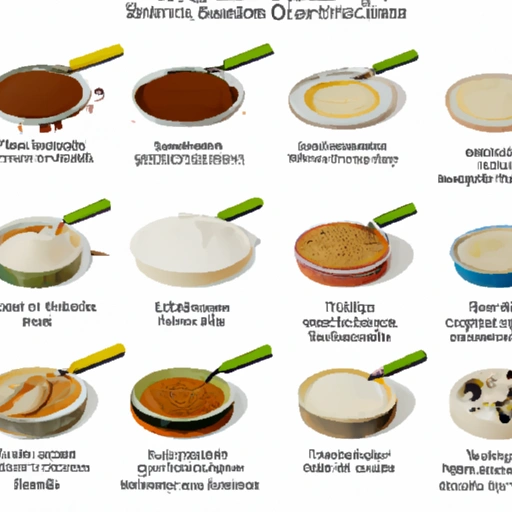Sugar Replacement
Description

Sugar replacements come in various forms, offering alternatives to traditional sugar for those looking to reduce calorie intake or manage blood sugar levels. These substitutes can range from natural sweeteners, like stevia and monk fruit extract, to sugar alcohols such as xylitol and erythritol, to synthetic options like aspartame and sucralose.
In recipes, sugar replacements are often used in different quantities than sugar, and may require conversions between American units (cups, tablespoons, teaspoons) and European metric units (grams, milliliters). It's important to note that each sugar replacement has its own sweetness profile and may affect the taste and texture of the final product.
Common uses
Sugar replacements are commonly used in beverages, baked goods, candy, and other desserts. They are also found in a variety of processed foods, diet drinks, and as table-top sweeteners.
Nutritional value
Calories
Most sugar replacements are low in calories or calorie-free, making them a popular choice for weight management.
Protein
Sugar replacements generally contain little to no protein.
Fat
Sugar replacements typically have no fat content.
Carbohydrates
While some sugar alcohols contain carbohydrates, many sugar replacements have a minimal impact on blood sugar levels.
Vitamins
Sugar replacements do not provide significant amounts of vitamins.
Minerals
Minerals are not a primary component of sugar replacements.
Health benefits
Using sugar replacements may contribute to better dental health by reducing the risk of cavities compared to regular sugar. They can also aid in weight management and help individuals with diabetes maintain stable blood glucose levels.
Potential risks
Some sugar substitutes can cause digestive discomfort, especially sugar alcohols when consumed in large amounts. People with phenylketonuria (PKU) should avoid sweeteners containing phenylalanine, such as aspartame.
Common recipes
Sugar replacements are used in a variety of recipes, such as sugar-free cookies, cakes, and jams, as well as in sauces and dressings where a touch of sweetness is desired.
Cooking methods
Depending on their heat stability, sugar replacements can be used for baking, boiling, and other cooking methods.
Pairing with other ingredients
They are often paired with other ingredients like cinnamon or vanilla to enhance their sweetness.
Summary
Sugar replacements allow individuals to enjoy sweet flavors without the calories and blood sugar impact of regular sugar. They are versatile and can be used in many culinary applications, although they may not behave exactly like sugar in all recipes. It's essential to understand each substitute's properties and appropriate usage ratios for successful results.